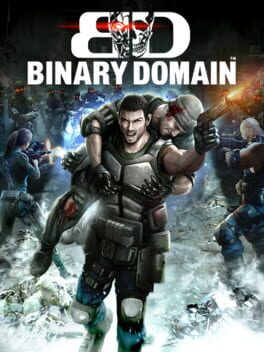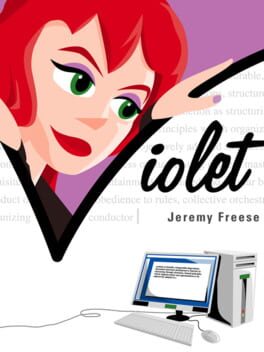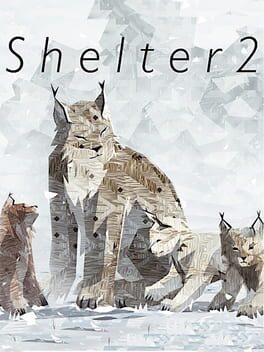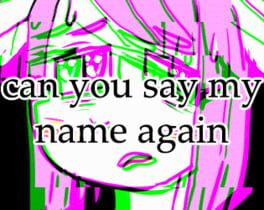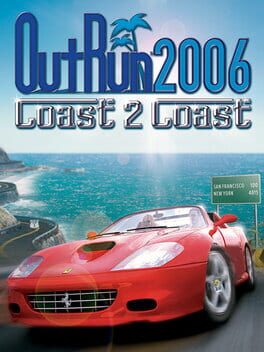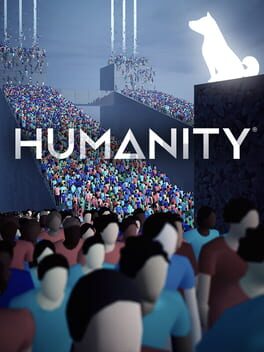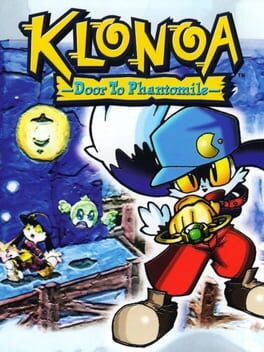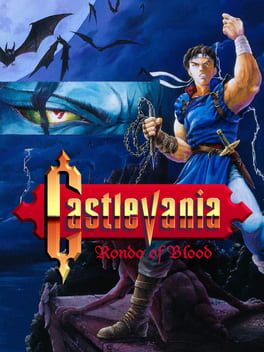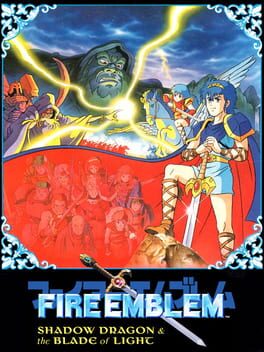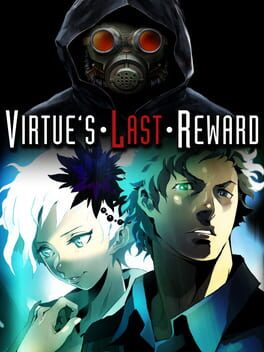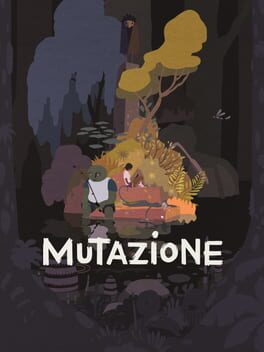rubenmg
Saints and witches, angels and demons, blessed and cursed… contraries that are true depending on the perspective, but that turn out to be false in the overall image. Behind those labels, made up to simplify complexities, there are just regular people and their circumstances.
Discrimination for one’s gender, racism, greed, honor, class differences… many unfortunate events may push someone into doing harm to get away, taking into account all of the perspectives there is really not one true evil to point the finger at and to condemn. Does this excuse anyone from hurting? It doesn’t. Having to sacrifice others is never an option, it may seem like it sometimes, but at that same moment the damage is done for not even considering a way to protect everyone as the only real choice. Should there be vengeance upon those who hurt? Not either. Trying to pay with the same coin not only creates the well known never ending cycle, as other people get caught in the consequences escalating the conflict into eternity, but the own person who seeks vengeance ends up trapped, unable to find their own peace, arguably suffering more than anyone else. The proper penance is not receiving the damage dealt back, it is compromising and being active towards changing for the best.
A game with so much tragedy and suffering can be deceiving at first. Everything will end up the worst way possible, the characters, even with their reasons, seem to make all the wrong choices, hundreds of years pass on with very few hints of hope that is slowly vanishing. But the game never rejoices in said suffering, it is there to make us understand every perspective properly, but always treated carefully, conscious of what is shown and how. Where the game rejoices, be it on the scarce illustrations and especially in the extended romantic narrations, is in the more tender moments.
A “chapter” stands out as a pillar in the middle of the story where the true heart is revealed. Only two people, trapped, who went through a lot of suffering, being betrayed by those who were closest to them at some point, unable to trust anymore. It is because they share stigmas upon them that they can, ironically, understand each other so well. From there on the relationship just flourishes in mundane and beautiful ways, talking every day, picking some flowers in the garden, playing chess, reading a book together, a declaration of love that slips through the tongue…
Forgiveness, of oneself and therefore towards those who hurt you, is a long process, it cannot be granted so easily. The first step is listening. This is no easy task for any side, the one who has to tell also has trouble opening the doors that were shut in order to forget, but said doors cannot stay closed, the past cannot be forgotten, even if it hurts. Only upon sharing and understanding, the fairy tales will come down and reality can be taken on. The past cannot be changed, the damage is done, but for that same reason we must do our best from there on. To have faith and to be our best as we push forward for a better future.
Discrimination for one’s gender, racism, greed, honor, class differences… many unfortunate events may push someone into doing harm to get away, taking into account all of the perspectives there is really not one true evil to point the finger at and to condemn. Does this excuse anyone from hurting? It doesn’t. Having to sacrifice others is never an option, it may seem like it sometimes, but at that same moment the damage is done for not even considering a way to protect everyone as the only real choice. Should there be vengeance upon those who hurt? Not either. Trying to pay with the same coin not only creates the well known never ending cycle, as other people get caught in the consequences escalating the conflict into eternity, but the own person who seeks vengeance ends up trapped, unable to find their own peace, arguably suffering more than anyone else. The proper penance is not receiving the damage dealt back, it is compromising and being active towards changing for the best.
A game with so much tragedy and suffering can be deceiving at first. Everything will end up the worst way possible, the characters, even with their reasons, seem to make all the wrong choices, hundreds of years pass on with very few hints of hope that is slowly vanishing. But the game never rejoices in said suffering, it is there to make us understand every perspective properly, but always treated carefully, conscious of what is shown and how. Where the game rejoices, be it on the scarce illustrations and especially in the extended romantic narrations, is in the more tender moments.
A “chapter” stands out as a pillar in the middle of the story where the true heart is revealed. Only two people, trapped, who went through a lot of suffering, being betrayed by those who were closest to them at some point, unable to trust anymore. It is because they share stigmas upon them that they can, ironically, understand each other so well. From there on the relationship just flourishes in mundane and beautiful ways, talking every day, picking some flowers in the garden, playing chess, reading a book together, a declaration of love that slips through the tongue…
Forgiveness, of oneself and therefore towards those who hurt you, is a long process, it cannot be granted so easily. The first step is listening. This is no easy task for any side, the one who has to tell also has trouble opening the doors that were shut in order to forget, but said doors cannot stay closed, the past cannot be forgotten, even if it hurts. Only upon sharing and understanding, the fairy tales will come down and reality can be taken on. The past cannot be changed, the damage is done, but for that same reason we must do our best from there on. To have faith and to be our best as we push forward for a better future.
2012
When an enemy robot falls down, it becomes a sacrificial tool that will crawl towards his objective, its life is now regardless. When a teammate falls down it becomes a rescue mission, it will not take a second for a partner to ask if there is a need for help. In the machine apocalypse where the line between human and robot is so blurred that no one can know for sure what they are anymore, the team that defends humanity is just one thing: comrades.
Small talks, what to do when everything is over, jokes, being dumb, having the worst romance, lending a helping hand, dividing sides of the battle, acting as decoys, covering each others back. The dichotomy between artificial and human is in them in various ways, the militaristic ambiance makes orders seem robotic, partners will listen to you more if they trust you but said trust is represented by a simple bar. Upgrades are equipped through nanomachines and it could be considered that traditional game elements like the dependency on weapons or the nature of ally AI are slightly recontextualized just by the setting.
What is more interesting within the main theme is not so much in taking it as philosophical or as a complete joke, very little will be found in those ways. It is a considerate trust in humanity that doesn’t fall into naivety. Humans brought our own apocalypse to begin with, and if you think that we may have learned from the past, you are very wrong. By the end of the game a plot twist is revealed and what we thought was the “human” side of the conflict ends up being just another fight over power. Upon this discovery, all of the team has it clear, as always, no matter if the fight is too big for them, they won’t budge down and will do everything that is in their hand.
Knowing a bit about the studio, it’s surprising to see a game like this. It sure seems like there were a lot of problems in development, probably related to tackling a new genre, and the game ends up falling a bit short in some aspects, especially in the second half. But also it seems like they wanted to build this group adventure so much, there was so much charisma that the studio would blow out if they didn’t finish the game. It sure would be a shame if the same team would later spend the rest of their days making carbon copies of formulas that they don't care about anymore, taking a mold where everything fits, or at least that's what they wish to, turned into robots.
Small talks, what to do when everything is over, jokes, being dumb, having the worst romance, lending a helping hand, dividing sides of the battle, acting as decoys, covering each others back. The dichotomy between artificial and human is in them in various ways, the militaristic ambiance makes orders seem robotic, partners will listen to you more if they trust you but said trust is represented by a simple bar. Upgrades are equipped through nanomachines and it could be considered that traditional game elements like the dependency on weapons or the nature of ally AI are slightly recontextualized just by the setting.
What is more interesting within the main theme is not so much in taking it as philosophical or as a complete joke, very little will be found in those ways. It is a considerate trust in humanity that doesn’t fall into naivety. Humans brought our own apocalypse to begin with, and if you think that we may have learned from the past, you are very wrong. By the end of the game a plot twist is revealed and what we thought was the “human” side of the conflict ends up being just another fight over power. Upon this discovery, all of the team has it clear, as always, no matter if the fight is too big for them, they won’t budge down and will do everything that is in their hand.
Knowing a bit about the studio, it’s surprising to see a game like this. It sure seems like there were a lot of problems in development, probably related to tackling a new genre, and the game ends up falling a bit short in some aspects, especially in the second half. But also it seems like they wanted to build this group adventure so much, there was so much charisma that the studio would blow out if they didn’t finish the game. It sure would be a shame if the same team would later spend the rest of their days making carbon copies of formulas that they don't care about anymore, taking a mold where everything fits, or at least that's what they wish to, turned into robots.
2008
Only one objective, to write 1000 words in order to finish your dissertation and, most importantly, prevent your girlfriend Violet from going away as she has been waiting too long for that task to be done, this is the last chance. The intention is always to get rid of the immediate distraction which then leads to another distraction, and so forth. Creating a very strong sense of space by focusing on detailing a single room (which adds to the lack of attention), the solutions to each problem are obtuse, not so much for the sake of getting you stuck (using the hint command will end up giving you the exact actions to execute) but to reach exaggerated absurdist situations unexpectedly twisted for the setting, ending up in a very intimate total chaos.
Forgot to say, everything in the game is narrated by Violet, or better said, by the Violet that the protagonist imagines, as she is still patiently waiting somewhere else far away. Adding a more catchy flow to every line where the narrator has a personality while still being absent, there is some more cute obvious twist behind it. No matter the small distractions, what the main character cannot get out of their head and what motivates them to write is the same thing. They cannot stop thinking about Violet.
Forgot to say, everything in the game is narrated by Violet, or better said, by the Violet that the protagonist imagines, as she is still patiently waiting somewhere else far away. Adding a more catchy flow to every line where the narrator has a personality while still being absent, there is some more cute obvious twist behind it. No matter the small distractions, what the main character cannot get out of their head and what motivates them to write is the same thing. They cannot stop thinking about Violet.
2015
The fundamentals were already defined in the first game. Turning back to check on your children, counting all of them each time. Searching desperately for the food that likes to hide when the hunger is at its high. One of the biggest differences is in the approach, as convincing as some of the set piece driven linear navigation was carried out, the nature calls for the wild, the dread of danger coming from any direction, the prey harder to corner. A harsher world that shows its hazards in just being there, and in consequence, a world where life is more prized.
Despite my bad memory, I still remember much of my first playthrough about 7 years ago. How only one of my cubs survived, often not even knowing how the others got lost. Getting better at my hunts, not sure if because of experience or because all that remained was only one hope. Asking the stars that guided me to a secure den at the start if I misread the constellations, if I did something wrong. As i kept thinking, the little one was no more, it matched my shape and size now, the steps that were always on my back now often stole my lead. I reached the conclusion that it was pointless to ask for what could I have done and better celebrate the life that survived, the life that now had to go away and truly live on its own. I remember being emotional at the ending where the lonely notes didn’t last for long when the stars appeared again and I was reunited somewhere else with, what I thought, was once my child.
Things have changed now. The harsh world that I remembered is bland. Not only you don’t have to go out of your comfort zone at all, completionism being the only incentive to explore to make it worse. Hunting rabbits for the whole year does the job, I don’t even think you need to return to the den at all. Climate changes the look and a bit of what gets added to your collection, but nothing more. The seasons run long, not because of the hard job of keeping the family alive, but because of the tedium of always repeating the same hunt. When the 4 cubs now survived and grew up I didn’t cherish the last moment, I just wanted them to spread as soon as they could, I knew they were ready after all. That ending scene that moved me so much was misunderstood, the 4 lynx survived, but there was only one there waiting for me. Who was that? My own mother, one of my children, some partner that I lost time ago? At least I can still recall the sentiment of what I once thought this was.
Despite my bad memory, I still remember much of my first playthrough about 7 years ago. How only one of my cubs survived, often not even knowing how the others got lost. Getting better at my hunts, not sure if because of experience or because all that remained was only one hope. Asking the stars that guided me to a secure den at the start if I misread the constellations, if I did something wrong. As i kept thinking, the little one was no more, it matched my shape and size now, the steps that were always on my back now often stole my lead. I reached the conclusion that it was pointless to ask for what could I have done and better celebrate the life that survived, the life that now had to go away and truly live on its own. I remember being emotional at the ending where the lonely notes didn’t last for long when the stars appeared again and I was reunited somewhere else with, what I thought, was once my child.
Things have changed now. The harsh world that I remembered is bland. Not only you don’t have to go out of your comfort zone at all, completionism being the only incentive to explore to make it worse. Hunting rabbits for the whole year does the job, I don’t even think you need to return to the den at all. Climate changes the look and a bit of what gets added to your collection, but nothing more. The seasons run long, not because of the hard job of keeping the family alive, but because of the tedium of always repeating the same hunt. When the 4 cubs now survived and grew up I didn’t cherish the last moment, I just wanted them to spread as soon as they could, I knew they were ready after all. That ending scene that moved me so much was misunderstood, the 4 lynx survived, but there was only one there waiting for me. Who was that? My own mother, one of my children, some partner that I lost time ago? At least I can still recall the sentiment of what I once thought this was.
2009
After a rather brief introduction where a simplified, yet very charming (years of Tokimeki experience plus new presentation approaches do wonders), dating sim structured section plays out, the game reveals what is it really about. For once, the confession isn’t the end of the love story, but the beginning.
Which is a very interesting idea. Using the real time approach (because skip mode, apart from being clearly unintended, sucks) the game still has the charm from the introduction in a much more relaxed pace, but something begins to fail. The more you meet your girlfriend, the more you go out on dates, the more you touch her, the more you kiss her, the less you want to do any of that. Which is also even more interesting. It still carries the question, how does love work after that initial burst, after insecurities are dissipated and becomes part of the daily routine? There are many roads to explore, like to examine how the relationship develops into something more mature, or even to witness how the passion gets lost, the need to see each other fades away and becomes a dear memory of the past. But no, LovePlus is not really interested in that. At this point, your Tamagotchi girlfriend will always be at your loyal service, pretending she cares the same as the beginning, waiting eternally frozen at high school for you even long after you forget her. I just wish both sides could move on.
Which is a very interesting idea. Using the real time approach (because skip mode, apart from being clearly unintended, sucks) the game still has the charm from the introduction in a much more relaxed pace, but something begins to fail. The more you meet your girlfriend, the more you go out on dates, the more you touch her, the more you kiss her, the less you want to do any of that. Which is also even more interesting. It still carries the question, how does love work after that initial burst, after insecurities are dissipated and becomes part of the daily routine? There are many roads to explore, like to examine how the relationship develops into something more mature, or even to witness how the passion gets lost, the need to see each other fades away and becomes a dear memory of the past. But no, LovePlus is not really interested in that. At this point, your Tamagotchi girlfriend will always be at your loyal service, pretending she cares the same as the beginning, waiting eternally frozen at high school for you even long after you forget her. I just wish both sides could move on.
2015
Obviously (and thankfully?) the game doesn’t care, but it’s curious to see the loop where you build up a relationship with a girl, pleasing her in any way you can until you bang her and then basically ignore for the rest of the game because there’s nothing else to it. There’s something in that empty view on a relationship when it’s entirely based on sex as an objective that leaves you a weird “I guess that’s it” feeling again and again. Another morning on the bed with nothing to talk about, another new girl to chase, because and in spite of knowing how it’s going to end.
Anyway, for the things that someone really cared about, the infinitely contextually stupid date match minigame, the dehumanized conversational interplay to get upgrades and the perfectly defined personality of each girl create a not that obviously connected flow that works mostly because the individual parts are great but only recurrent when in cycle. I mean, the (fun) dialogues run out too quickly, but you need to keep talking to get better at the minigame, which is quite good and surprisingly thought out, but nothing that would be done more than 50 times if it wasn’t because it allows you to keep talking with the girls. It’s a destructive cycle of lust that you can recognize and deny or recognize, play along, and have fun with its farce. And then, in one of the best (probably unconscious) decisions, get eternally stuck with nothing to do, without even an ending to say goodbye. You got everything you wanted, you tasted all the honey, now what? Who cares.
https://www.youtube.com/watch?v=F_7BVaDIAbA
Anyway, for the things that someone really cared about, the infinitely contextually stupid date match minigame, the dehumanized conversational interplay to get upgrades and the perfectly defined personality of each girl create a not that obviously connected flow that works mostly because the individual parts are great but only recurrent when in cycle. I mean, the (fun) dialogues run out too quickly, but you need to keep talking to get better at the minigame, which is quite good and surprisingly thought out, but nothing that would be done more than 50 times if it wasn’t because it allows you to keep talking with the girls. It’s a destructive cycle of lust that you can recognize and deny or recognize, play along, and have fun with its farce. And then, in one of the best (probably unconscious) decisions, get eternally stuck with nothing to do, without even an ending to say goodbye. You got everything you wanted, you tasted all the honey, now what? Who cares.
https://www.youtube.com/watch?v=F_7BVaDIAbA
Remember the scene of the Simpsons where Milhouse is playing Bonestorm or something like that and the whole room is being blown away by the videogame? Some perceptive viewers will notice that fiction often lies, portraying impossible things like they were real. Obviously, the kid wasn’t playing Bonestorm, he was playing OutRun 2.
This is a game that goes way down when thinking about it coldly. The endings suck, the overall overflown of different cars, modes and variety of junk that no one wants sucks, and it even looks kind of ugly. And this is without comparing with the first OutRun!
So, very skeptical, I played the game again. Since the only version that I played was in the arcade and the ways of playing the game today seem to suck because preservation of videogames is a joke, I expected the game to be much worse than before. And after messing around with a horrible port of OutRun 2006 there it is, uglier and now with more crap because it is now a home release or something.
Then I go to the mode that seems more arcady without thinking too much and… forget about everything. As soon as the engine begins to sound you know that you cannot occupy your mind with the distractions that the game will even actively throw at you constantly, if you think you lose. Now, if in the first OutRun you needed to have a little of care with your speed to avoid ruining your run by crashing into a car or out of the road, the sequel (or whatever it is at this point) goes like “you see those cars in front? Go wreck them if you need to, don’t let anything turn your engine below from 5”.
I could bring up a never ending list of why humans are the most stupid living creatures in the universe. Fortunately, not all reasons are bad. Somehow, when we see that cars lose their direction when they make a hard turn at great speeds, instead of being in absolute terror of the chaotic consequences of these machines we go and find a way to make that cool. Seeing a car at 300 km/h while turned on its side makes us go back to the most idiots of monkeys, enthusiastic for a few minutes to the point that we start sweating while sitting down. A car destroying physics and pushing away its obstacles like they were made of paper. Is it possible for the fakest of the cars to just go drifting and make you shake your body every single time? The reason says no, reality says otherwise.
This is a game that goes way down when thinking about it coldly. The endings suck, the overall overflown of different cars, modes and variety of junk that no one wants sucks, and it even looks kind of ugly. And this is without comparing with the first OutRun!
So, very skeptical, I played the game again. Since the only version that I played was in the arcade and the ways of playing the game today seem to suck because preservation of videogames is a joke, I expected the game to be much worse than before. And after messing around with a horrible port of OutRun 2006 there it is, uglier and now with more crap because it is now a home release or something.
Then I go to the mode that seems more arcady without thinking too much and… forget about everything. As soon as the engine begins to sound you know that you cannot occupy your mind with the distractions that the game will even actively throw at you constantly, if you think you lose. Now, if in the first OutRun you needed to have a little of care with your speed to avoid ruining your run by crashing into a car or out of the road, the sequel (or whatever it is at this point) goes like “you see those cars in front? Go wreck them if you need to, don’t let anything turn your engine below from 5”.
I could bring up a never ending list of why humans are the most stupid living creatures in the universe. Fortunately, not all reasons are bad. Somehow, when we see that cars lose their direction when they make a hard turn at great speeds, instead of being in absolute terror of the chaotic consequences of these machines we go and find a way to make that cool. Seeing a car at 300 km/h while turned on its side makes us go back to the most idiots of monkeys, enthusiastic for a few minutes to the point that we start sweating while sitting down. A car destroying physics and pushing away its obstacles like they were made of paper. Is it possible for the fakest of the cars to just go drifting and make you shake your body every single time? The reason says no, reality says otherwise.
2007
Initially, the game has no bad ideas at all. The Tartarus as the main (and almost only) dungeon being randomized gives it a sense of unknown in every journey, with even some team management elements in order to explore each floor in different ways. Speaking of teammates, the decision to not be able to control them directly gives the combat a fresh strategic view. Equally refreshing, the life simulation manages to convey its adolescent fantasy by mixing both mundane and supernatural worlds. Even the social links having direct effect and thus forcing you to relate with as many people as possible and to keep them happy whenever you encounter them is a right decision. True, it can lead to some condescending behavior towards everyone because of convenience, but it can also be understood as a way to understand each person.
And at the premises is where Persona 3 ends. The dungeon is soon revealed as poorly followed in thought. The floor generation is incredibly samey, and there is never a sense of getting lost (or a need to spread the companions around) because of using such a limited pool of assets in incredibly small sized floors. It fails both as a hassle to progress and as an adventuring device. The shadow enemies, being exactly the same during the whole game and the only enemy to encounter, are easy to observe and evade from the very beginning. The enemies happen to be so predictable that not only escalating to the next Tartarus checkpoint while avoiding combat or giving a back strike to start with an advantage is mindless, there is no trouble in doing both even with emulator turbo enabled.
Thankfully, you can progress through Tartarus at your own pace, but even if you defeat the bosses and reach the story blocked checkpoint, the game incentivizes you to go back and grind. It will be your only source of experience, money and personas to begin with. The worst part is noticing that the randomness of the dungeon that was supposed to make it intimidating ends up acting as a pseudogacha where to celebrate the encountering of rare chests and drops. And yes, your characters fatigue after a number of fights, but instead of making this as a threat, it is another incentive to keep grinding the dungeon while everyone is capable of combat (and the most interesting implications of this, getting blocked because of mismanagement, is erased for your convenience at the end of the game).
The JRPG dungeon grinding systems are the best part of the game.
The life simulation suffers from a similar need to press the turbo button because of its babyfied copy of Tokimeki Memorial being shallow, elongated, devoid of friction and with no interesting real choices to make (similarly, Tokimeki also had an implicit comment on time being wasted on improving oneself while life went away, it helped to get the point across that three years of high school went away in 5 hours at most in opposition to less than one year ending after 60+ hours). I could forgive this and other details like the weird push for romantic connotations with every female character, the friendship hilariously disappearing whenever the social link is completed (when the bond is unbreakable, according to the game own words) or the aforementioned convenient condescending approach to dialogue options if the stories would be any good. They start with an attempt of being lighthearted, and noticing how boring they are halfway through, they usually throw some half-baked drama that makes Inazuma Eleven secret characters' backstories look like Shakespearian tragedies.
Even though it is appreciated that the game main plot is rather calm to just enjoy the day to day (something that, as already said, fails to do so), the narrative obstacles in the smaller stories are just a teaser of the ineptitude of the whole game. The main group, despite living in the same residence and going to the same school, seems afraid to spend time together that is not relevant to the main plot. It is so clearly disinterested in making a group dynamic that up until the very end of the game it will be usual to approach one of your team members at night for a casual talk and hear a tutorial prompt instead. I have to admit that the overall insipidness of everyone helps to look at the dog the same as any other team member, at least.
The more “serious” story beats may be the worst part. Just to exemplify, the first arc of the story that wants to carry some weight deals with a group of girls bullying one of their classmates. As obvious as it is at this point, Persona 3 does not care in any human way about neither life in general nor in teenage life in particular, so the bully is forgiven and corrected after her life is saved by the bullied and the story is concluded, they are now inseparable friends even. This very same ineptitude could be discussed with every dramatic driven story beat, save perhaps for the admittedly okayish ending (talking about The Journey here, I prefer to ignore the whole existence of The Answer in every sense).
As much as Persona 3 ends up wanting to talk about the importance and impact of death and its worries or where our world is going to (in quite a conservative mindset where marriage and divorce rates are relevantly present in the news for instance), its attempt cannot be taken seriously at such a glaring misunderstanding of life itself.
And at the premises is where Persona 3 ends. The dungeon is soon revealed as poorly followed in thought. The floor generation is incredibly samey, and there is never a sense of getting lost (or a need to spread the companions around) because of using such a limited pool of assets in incredibly small sized floors. It fails both as a hassle to progress and as an adventuring device. The shadow enemies, being exactly the same during the whole game and the only enemy to encounter, are easy to observe and evade from the very beginning. The enemies happen to be so predictable that not only escalating to the next Tartarus checkpoint while avoiding combat or giving a back strike to start with an advantage is mindless, there is no trouble in doing both even with emulator turbo enabled.
Thankfully, you can progress through Tartarus at your own pace, but even if you defeat the bosses and reach the story blocked checkpoint, the game incentivizes you to go back and grind. It will be your only source of experience, money and personas to begin with. The worst part is noticing that the randomness of the dungeon that was supposed to make it intimidating ends up acting as a pseudogacha where to celebrate the encountering of rare chests and drops. And yes, your characters fatigue after a number of fights, but instead of making this as a threat, it is another incentive to keep grinding the dungeon while everyone is capable of combat (and the most interesting implications of this, getting blocked because of mismanagement, is erased for your convenience at the end of the game).
The JRPG dungeon grinding systems are the best part of the game.
The life simulation suffers from a similar need to press the turbo button because of its babyfied copy of Tokimeki Memorial being shallow, elongated, devoid of friction and with no interesting real choices to make (similarly, Tokimeki also had an implicit comment on time being wasted on improving oneself while life went away, it helped to get the point across that three years of high school went away in 5 hours at most in opposition to less than one year ending after 60+ hours). I could forgive this and other details like the weird push for romantic connotations with every female character, the friendship hilariously disappearing whenever the social link is completed (when the bond is unbreakable, according to the game own words) or the aforementioned convenient condescending approach to dialogue options if the stories would be any good. They start with an attempt of being lighthearted, and noticing how boring they are halfway through, they usually throw some half-baked drama that makes Inazuma Eleven secret characters' backstories look like Shakespearian tragedies.
Even though it is appreciated that the game main plot is rather calm to just enjoy the day to day (something that, as already said, fails to do so), the narrative obstacles in the smaller stories are just a teaser of the ineptitude of the whole game. The main group, despite living in the same residence and going to the same school, seems afraid to spend time together that is not relevant to the main plot. It is so clearly disinterested in making a group dynamic that up until the very end of the game it will be usual to approach one of your team members at night for a casual talk and hear a tutorial prompt instead. I have to admit that the overall insipidness of everyone helps to look at the dog the same as any other team member, at least.
The more “serious” story beats may be the worst part. Just to exemplify, the first arc of the story that wants to carry some weight deals with a group of girls bullying one of their classmates. As obvious as it is at this point, Persona 3 does not care in any human way about neither life in general nor in teenage life in particular, so the bully is forgiven and corrected after her life is saved by the bullied and the story is concluded, they are now inseparable friends even. This very same ineptitude could be discussed with every dramatic driven story beat, save perhaps for the admittedly okayish ending (talking about The Journey here, I prefer to ignore the whole existence of The Answer in every sense).
As much as Persona 3 ends up wanting to talk about the importance and impact of death and its worries or where our world is going to (in quite a conservative mindset where marriage and divorce rates are relevantly present in the news for instance), its attempt cannot be taken seriously at such a glaring misunderstanding of life itself.
2023
For the first half, Humanity is an alright puzzle game. It falls into many irregular puzzle conventions of my personal dislike, focusing on introducing a large number of mechanics instead of being smart with the available tools, yet it still reaches some very high points of wit, even with the ideas that made me raise my eyebrow at first glance.
At the half of the game, the main surprise is the genre shift. The principal difference between the stealth, strategy, action, platformer or whatever else new facets of this second half is that, contrary to the first one, the quality ranges from bad to very bad. The principles established to make a good puzzle game do not cover enough range to go further from a surface recognition of the other genres. Even the genre shift idea itself seems less smart than the game thinks when noticing that the radical change comes from a single power up introduction. The first step to turn a Mario game into a shooter is giving him a gun.
This shift could be taken at least from its symbolic significance (hard thing to do considering the detachment that the narrative provokes by seeming more concerned with pretending to care about the big questions rather than caring about really anything), if it wasn't because of the occasional puzzle comebacks and, honestly, no idea how rejecting the puzzle nature or branching from it should be a positive read on humanity’s capacity instead of a signal of its incapacity.
To the puzzle that was the lack of ideas halfway through the journey, the proposed solution was to break all rules, forgetting why they existed, mistaking becoming a fragile shifting shadow of greater ones with an alternative way to find its own identity. The solution was to stop right there.
At the half of the game, the main surprise is the genre shift. The principal difference between the stealth, strategy, action, platformer or whatever else new facets of this second half is that, contrary to the first one, the quality ranges from bad to very bad. The principles established to make a good puzzle game do not cover enough range to go further from a surface recognition of the other genres. Even the genre shift idea itself seems less smart than the game thinks when noticing that the radical change comes from a single power up introduction. The first step to turn a Mario game into a shooter is giving him a gun.
This shift could be taken at least from its symbolic significance (hard thing to do considering the detachment that the narrative provokes by seeming more concerned with pretending to care about the big questions rather than caring about really anything), if it wasn't because of the occasional puzzle comebacks and, honestly, no idea how rejecting the puzzle nature or branching from it should be a positive read on humanity’s capacity instead of a signal of its incapacity.
To the puzzle that was the lack of ideas halfway through the journey, the proposed solution was to break all rules, forgetting why they existed, mistaking becoming a fragile shifting shadow of greater ones with an alternative way to find its own identity. The solution was to stop right there.
The dreamy landscapes lose their magic very soon as the screen fills with collectibles, health refills, keys to open doors, and the worst one, enemies respawning only so you can advance, slaves to what-you-have-to-do... The main characteristic from a gameplay perspective comes in the form of Klonoa’s weapon. His weapon can capture enemies and then throw them around any direction or even use them as a double jump. There’s not much to it and after five minutes the interest in using this mechanic is lost. The game knows it, so in order to keep the idea being used it throws mini-puzzles again and again and again turning what would be a forgettable tool into an unforgettable chore.
The not specially great platformer could be enough to carry on with the overall adventure, but in that regard it fails even more. The biggest miss is that the drama doesn’t hit at all. Is it really that sad that a character that just talked to send Klonoa to do a chore in the whole game dies? Is it to cry if at the end of Super Mario Yoshi said “sorry Mario I messed with your mind so that you would help us, you are not really from this planet you must go”? I think I would care a little bit about anything that happened if the supposed charm wasn’t so careless. One highlight of how mishandled this charming adventure is would be the second boss of the game, where to liberate the mother of a character from the control of the bad ones you have to hit her with another mind-controlled evil guy until both become good again. Between this and killing a mother’s ghost to liberate her in the first Pokemon games this generation’s moms must have kept their guard very up.
The not specially great platformer could be enough to carry on with the overall adventure, but in that regard it fails even more. The biggest miss is that the drama doesn’t hit at all. Is it really that sad that a character that just talked to send Klonoa to do a chore in the whole game dies? Is it to cry if at the end of Super Mario Yoshi said “sorry Mario I messed with your mind so that you would help us, you are not really from this planet you must go”? I think I would care a little bit about anything that happened if the supposed charm wasn’t so careless. One highlight of how mishandled this charming adventure is would be the second boss of the game, where to liberate the mother of a character from the control of the bad ones you have to hit her with another mind-controlled evil guy until both become good again. Between this and killing a mother’s ghost to liberate her in the first Pokemon games this generation’s moms must have kept their guard very up.
Following Castlevania tradition as in: focusing on platforming sections that never work, filling the screen with so many enemies that the game bleeds in lag or having bosses that throw their patterns oblivious of you (Dracula) sucks. Following Castlevania tradition as in following its mythology/iconography: the Belmont who goes to face Dracula and his monsters in his own castle, with the staircase before the final battle or the castle getting destroyed in the horizon at the end, rules just as much as the many reinterpretations of the original Dracula tale itself.
True, this game has some of the Castlevania junk mentioned before, the good idea of the alternative paths is not that good when most of the times the optional routes are kind of bad and the idea of having Maria as a playable character could be a fun joke, but getting unlocked so soon is a risk to ruin a whole playthrough. Fortunately, this reinterpretation of Castlevania manages to stay focused enough on its combat, specifically a combat of distance and space.
Usually Castlevania games fail to maintain a 1 to 1 tension between the player and the various hazards. Either the games are in a moment where everything is easy enough to carelessly press forward or you are trapped in knockback and pattern hells relying more on precision and memory to survive. In Rondo, not few enemies will react to where you are at, try to take up your space or punish you for entering their zone, adapt a block stance, even some of the projectile elements like the medussas are a nice counterpart to your objects. The highlight of this is seen in bosses, where every safe reaction to one of their patterns puts you in a stance where they can throw an attack that is specially vulnerable for you at the moment, a constant reaction of both sides, never standing still, the boss health bar mirroring yours almost makes it look like a fighting game at moments. The best thing is that the climax of these fights could not be other than the boss throwing a last desperate attack when its health is already gone, what a more sincere way to show honor to your opponent than to bid farewell with a last punch?
True, this game has some of the Castlevania junk mentioned before, the good idea of the alternative paths is not that good when most of the times the optional routes are kind of bad and the idea of having Maria as a playable character could be a fun joke, but getting unlocked so soon is a risk to ruin a whole playthrough. Fortunately, this reinterpretation of Castlevania manages to stay focused enough on its combat, specifically a combat of distance and space.
Usually Castlevania games fail to maintain a 1 to 1 tension between the player and the various hazards. Either the games are in a moment where everything is easy enough to carelessly press forward or you are trapped in knockback and pattern hells relying more on precision and memory to survive. In Rondo, not few enemies will react to where you are at, try to take up your space or punish you for entering their zone, adapt a block stance, even some of the projectile elements like the medussas are a nice counterpart to your objects. The highlight of this is seen in bosses, where every safe reaction to one of their patterns puts you in a stance where they can throw an attack that is specially vulnerable for you at the moment, a constant reaction of both sides, never standing still, the boss health bar mirroring yours almost makes it look like a fighting game at moments. The best thing is that the climax of these fights could not be other than the boss throwing a last desperate attack when its health is already gone, what a more sincere way to show honor to your opponent than to bid farewell with a last punch?
It certainly resembles a lot to chess since, in its own terms, it’s a game majorly about positioning. Sure, there is resource management and a bit of random number trickery, but most of the strategy will revolve around who is where to counter what. Though this could be said of most tile-based strategy games, and the comparison wouldn’t be untrue, something like (ironman) XCOM (forgive my limited knowledge in strategy yet) falls a bit further when the enemy units, or the terrain, are unknown upon arrival, the base management could be its own independent game and it explicitly wants you to take into account, and use, probability percentages. XCOM asks you to take risks and to take all the consequences, no turning back.
Since competing against an AI on equal grounds isn't the most exciting approach to a chess-like game (especially at this era) Fire Emblem looks more like a chess problem. A small hint to this is that the final ranking in further entries is decided taking into account your number of turns. So Fire Emblem ends up having a lot of a puzzle game too.
If everything goes well, a map in Fire Emblem will be completed in one smooth try. But maps are usually designed so that everything goes wrong. The board then turns into a full puzzle where to calculate what the enemy can do when and how to counterattack. Of course, there are some random numbers, mainly affecting criticals and dodges, but those are small things in the greater picture, a reason to restart the level again in the worst case and a small appreciated advantage in the best. Strategizing a map ends up being a planning exercise of eradicating dangers and exploiting weaknesses.
Some problems arise when seeing the game like this. It's not fully transparent like chess since there can be, and usually are, a few hidden surprises on the map and a lot more attention needs to be put to every enemy unit since each is unique unlike the six chess pieces existent. But these secrets end up losing the surprise factor on repetition, eventually becoming just another predictable piece of the board, and errors due to a lack of proper attention end up being resettable. Unlike chess, there are a lot of units to move each turn, and in consequence turns drag on and on with too many uninteresting decisions to repeat in every try.
It could be well questioned that this is not the way to play Fire Emblem at all, except for hardcore fans who seek a good score, that the first try should be about continuing however you can, imagining your own ironman mode because autosaving in every turn was not that possible in the system and keeping only the temporal save would be troublesome in such a long game, in case some outside factor would power off the console. However, that, to my knowledge, not a single Fire Emblem or Shouzou Kaga game has completely erased this saving system makes me think that it is more of a fundamental design element. Furthermore, the conclusive evidence lies in this very first game itself. Finishing a map asks you if you want to save since maybe you are not always sure that you can continue for long just by finishing the map in any state (and maybe, in a lot of cases, you can go on, but what's always sure is that you can retry to optimize the result, resources are too scarce to give them up so easily). And, what would Marth role be? Would he still be the warrior that leads an army by actively taking arms in every battle like any of his soldiers, or would he be the subject of an escort mission where his single death could mean losing dozens of hours of progress?
I see a very thought out strategy game in here, but, ultimately, I see that it's indecisive, it wants you to examine, to try out, but also to surprise you, to clearly punish for your mistakes, and I don't think it finds harmony and rhythm in its proposal. And my biggest fear is that the failure is so fundamental that no Shouzou Kaga or Fire Emblem game can really do anything about it. I'll have to see.
Since competing against an AI on equal grounds isn't the most exciting approach to a chess-like game (especially at this era) Fire Emblem looks more like a chess problem. A small hint to this is that the final ranking in further entries is decided taking into account your number of turns. So Fire Emblem ends up having a lot of a puzzle game too.
If everything goes well, a map in Fire Emblem will be completed in one smooth try. But maps are usually designed so that everything goes wrong. The board then turns into a full puzzle where to calculate what the enemy can do when and how to counterattack. Of course, there are some random numbers, mainly affecting criticals and dodges, but those are small things in the greater picture, a reason to restart the level again in the worst case and a small appreciated advantage in the best. Strategizing a map ends up being a planning exercise of eradicating dangers and exploiting weaknesses.
Some problems arise when seeing the game like this. It's not fully transparent like chess since there can be, and usually are, a few hidden surprises on the map and a lot more attention needs to be put to every enemy unit since each is unique unlike the six chess pieces existent. But these secrets end up losing the surprise factor on repetition, eventually becoming just another predictable piece of the board, and errors due to a lack of proper attention end up being resettable. Unlike chess, there are a lot of units to move each turn, and in consequence turns drag on and on with too many uninteresting decisions to repeat in every try.
It could be well questioned that this is not the way to play Fire Emblem at all, except for hardcore fans who seek a good score, that the first try should be about continuing however you can, imagining your own ironman mode because autosaving in every turn was not that possible in the system and keeping only the temporal save would be troublesome in such a long game, in case some outside factor would power off the console. However, that, to my knowledge, not a single Fire Emblem or Shouzou Kaga game has completely erased this saving system makes me think that it is more of a fundamental design element. Furthermore, the conclusive evidence lies in this very first game itself. Finishing a map asks you if you want to save since maybe you are not always sure that you can continue for long just by finishing the map in any state (and maybe, in a lot of cases, you can go on, but what's always sure is that you can retry to optimize the result, resources are too scarce to give them up so easily). And, what would Marth role be? Would he still be the warrior that leads an army by actively taking arms in every battle like any of his soldiers, or would he be the subject of an escort mission where his single death could mean losing dozens of hours of progress?
I see a very thought out strategy game in here, but, ultimately, I see that it's indecisive, it wants you to examine, to try out, but also to surprise you, to clearly punish for your mistakes, and I don't think it finds harmony and rhythm in its proposal. And my biggest fear is that the failure is so fundamental that no Shouzou Kaga or Fire Emblem game can really do anything about it. I'll have to see.
My main issue with the Zero Escape saga thus far is the personality of the characters: they don't have any. They live and die in a plot of intrigue where they serve only as cogs in the greater mystery.
This should not be a problem, as the games seem to be somewhat aware of the condition of those characters, so everything is directed towards conversations that seek to create enigmas, explain them (or try to) and play with ambiguities. That is, they don't so much seek to be emotional games (luckily, seeing the messy occasional attempts) as intelligent games, which is why they don't shy away from including escape rooms, puzzles and frequent scientific or philosophical references with explicitly cheeky quotes. But they are not smart games.
The deficiency in creating good riddles contained in the escape rooms is more severe, although more concealed, in the main plot. One expects the revelations to show the connections hidden under our noses all this time, but it isn’t like that, particularly in Virtue's Last Reward. Ideas simply succeed one another, none of them particularly imaginative, surprising or interesting on their own or in their cohesion and evidently discrepant when the biggest surprises are revealed, even trying to exemplify them by clarifying small forgettable enigmas without being able to avoid raising at least two major contradictions on the core plot in the process. As you understand more, you also wonder if all this is going to go anywhere. If the component of intrigue, of tension, of intelligence, of emotion, of surprise, if all this and more, has been lost, what is left?
The first installment ended with an ending that, although it came too late and too clumsy, at least achieved something, literalizing a scientific hypothesis into something convincing for its fiction. It made you want to see what more was there to say about it, what could be explored once this hypothesis had materialized, how far could it go.
In Virtue's Last Reward, it is made clear that there was nothing more to say. It tells what is already known and the little that is not, or was less obvious, such as to what extent future actions can have unexpected repercussions on this intricate temporal system, is again greatly reduced in comparison to everything else that gets in the way. Even its worsened structure is surprising. This one, at first appearance more accurate, stating when the story branches and when it reaches different places, loses completely in tension.
Some mystery was preserved in the first game when deciding which teams would go where and how they would be formed, even more so when, being a first entry, anything could still happen. There was no guarantee that a fortuitous decision could not lead to a bad end, and in fact that was often the case in the long run. The structure of Virtue's Last Reward clarifies that it's not so much about choosing as it is about exploring, yet it still feels distracted. The door decision system is both more confusing and more boring, but the final straw comes in the voting ramifications. Something that should be a total psychological confrontation is actually revealed very quickly as a simple formality, the weight that deciding one option or another may have, no matter how much it tries to insist on the supposed human burden carried, comes to nothing.
The last ace up the sleeve to justify the mediocrities that cannot stand their own weight is that the purpose of everything was to expand knowledge horizontally, hence the tree that branches more even if it was with less interesting motives and implications. However, from such an extensive tree of knowledge, ironically, once finished exploring, you come to learn nothing.
This should not be a problem, as the games seem to be somewhat aware of the condition of those characters, so everything is directed towards conversations that seek to create enigmas, explain them (or try to) and play with ambiguities. That is, they don't so much seek to be emotional games (luckily, seeing the messy occasional attempts) as intelligent games, which is why they don't shy away from including escape rooms, puzzles and frequent scientific or philosophical references with explicitly cheeky quotes. But they are not smart games.
The deficiency in creating good riddles contained in the escape rooms is more severe, although more concealed, in the main plot. One expects the revelations to show the connections hidden under our noses all this time, but it isn’t like that, particularly in Virtue's Last Reward. Ideas simply succeed one another, none of them particularly imaginative, surprising or interesting on their own or in their cohesion and evidently discrepant when the biggest surprises are revealed, even trying to exemplify them by clarifying small forgettable enigmas without being able to avoid raising at least two major contradictions on the core plot in the process. As you understand more, you also wonder if all this is going to go anywhere. If the component of intrigue, of tension, of intelligence, of emotion, of surprise, if all this and more, has been lost, what is left?
The first installment ended with an ending that, although it came too late and too clumsy, at least achieved something, literalizing a scientific hypothesis into something convincing for its fiction. It made you want to see what more was there to say about it, what could be explored once this hypothesis had materialized, how far could it go.
In Virtue's Last Reward, it is made clear that there was nothing more to say. It tells what is already known and the little that is not, or was less obvious, such as to what extent future actions can have unexpected repercussions on this intricate temporal system, is again greatly reduced in comparison to everything else that gets in the way. Even its worsened structure is surprising. This one, at first appearance more accurate, stating when the story branches and when it reaches different places, loses completely in tension.
Some mystery was preserved in the first game when deciding which teams would go where and how they would be formed, even more so when, being a first entry, anything could still happen. There was no guarantee that a fortuitous decision could not lead to a bad end, and in fact that was often the case in the long run. The structure of Virtue's Last Reward clarifies that it's not so much about choosing as it is about exploring, yet it still feels distracted. The door decision system is both more confusing and more boring, but the final straw comes in the voting ramifications. Something that should be a total psychological confrontation is actually revealed very quickly as a simple formality, the weight that deciding one option or another may have, no matter how much it tries to insist on the supposed human burden carried, comes to nothing.
The last ace up the sleeve to justify the mediocrities that cannot stand their own weight is that the purpose of everything was to expand knowledge horizontally, hence the tree that branches more even if it was with less interesting motives and implications. However, from such an extensive tree of knowledge, ironically, once finished exploring, you come to learn nothing.
2019
You take control of Kai, a girl that goes to a small village to see her ill grandfather. From this perspective the introduction to the neighbours of Mutazione goes very smoothly, both to the player and to Kai, new to the place but with some connections tied to the girl's family that lets the conversations go a bit further from casual chitchat.
The problem comes when the game tries to develop the cast of Mutazione. Most of the characters will tell their deepest worries and secrets, declarations never told to anyone before, to Kai in just a few days of barely knowing each other. The problem with the game sticking to Kai's perspective only starts there. Some of the more emotional moments of the game come from conversations between the neighbours that shouldn't concern our main character because of their deeply emotional and personal nature. However, this emotion is totally lost by voyeurism, with Kai always on frame breaking into other's intimacy without any care. The game is afraid that the emotions will not be carried on in the aftermath if we are not present at every moment.
The problem comes when the game tries to develop the cast of Mutazione. Most of the characters will tell their deepest worries and secrets, declarations never told to anyone before, to Kai in just a few days of barely knowing each other. The problem with the game sticking to Kai's perspective only starts there. Some of the more emotional moments of the game come from conversations between the neighbours that shouldn't concern our main character because of their deeply emotional and personal nature. However, this emotion is totally lost by voyeurism, with Kai always on frame breaking into other's intimacy without any care. The game is afraid that the emotions will not be carried on in the aftermath if we are not present at every moment.

